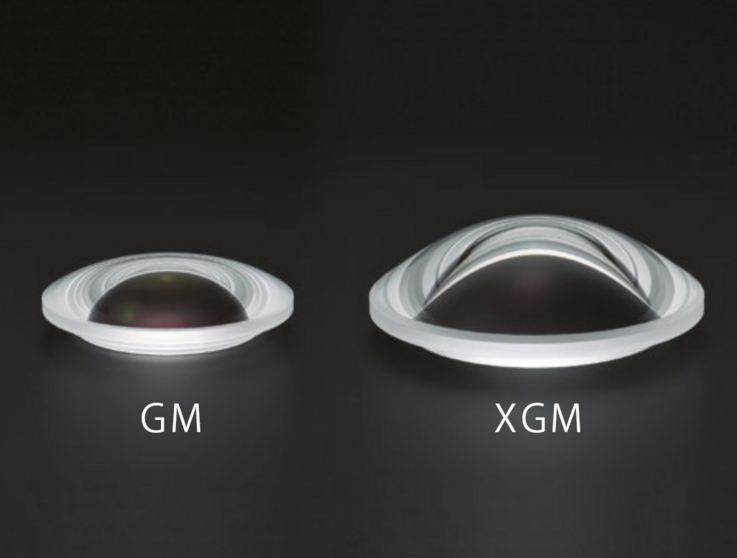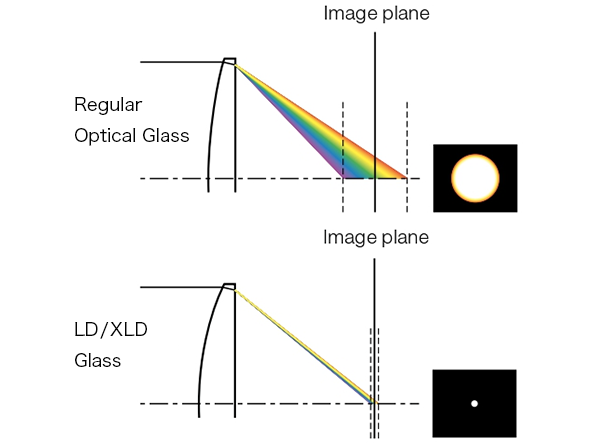Optical Technologies
-
XGM lens elements allow to harmonize both fast-aperture and distinguishably high resolution by minimizing distortion and enhancing the sharpness of the image at its periphery
Not only minimizing geometric distortion and/or spherical aberration, it also enables the ability to attain higher resolution while making the overall mechanical dimensions smaller. TAMRON’s XGM is a nomenclature of the breakthrough technology which yields aspheres of larger apertures exceeding 55mm in diameter. Fast-aperture and distinguishably high resolution across the field are harmonized by virtue of deploying the XGM element while keeping the overall form factor to the smallest possible without compromising any performance criteria.
-

-
GM lens elements have a significant impact on minimizing distortion and enhancing the sharpness of the image at its periphery
GM lens elements are capable of efficiently correcting aberrations in the angle of view that changes significantly with an ultra wide-angle zoom lens. It has an especially significant impact on minimizing distortion and enhancing the sharpness of the image at its periphery. Furthermore, the molded-glass manufacturing method allows the fabrication of a wider range of lens shapes than the composite aspherical lens method.
-

-
XLD lens elements made from specialized ultra-high-grade glass allow much greater control over chromatic aberration and magnification aberrations
XLD lens elements made from specialized ultra-high-grade glass allow much greater control over chromatic aberration and magnification aberrations than LD lens elements. XLD lens elements deliver the highest possible contrast, the finest detail, and superior imaging performance throughout the entire zoom range.
-

-
The characteristic of less of a tendency to separate a ray of light into a rainbow of colors effectively compensates for chromatic and lateral chromatic aberration
LD lens elements in help reduce chromatic aberrations. Chromatic aberration reduces the sharpness of an image, but glass with an extremely low dispersion index has less of a tendency to separate (diffract) a ray of light into a rainbow of colors. This characteristic allows the lens designer to effectively compensate for chromatic and lateral chromatic aberration which are a particular problem at wide-angle and telephoto focal lengths.
-



